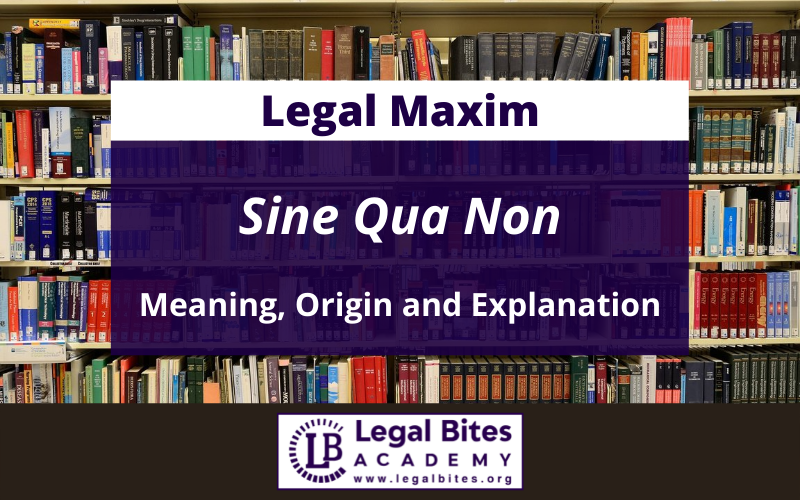Quid Pro Quo: Origin, Meaning and Explanation
This article titled ‘Quid Pro Quo: Origin, Meaning and Explanation’ is written by Sahajpreet Bhusari and discusses the legal maxim of Quid Pro Quo. I. Origin and Meaning Quid Pro Quo is a legal maxim of Latin origin. It literally translates to ‘something for something’[1]. II. Explanation In a broad sense, Quid Pro Quo refers to a consideration, i.e.… Read More »
;
This article titled ‘Quid Pro Quo: Origin, Meaning and Explanation’ is written by Sahajpreet Bhusari and discusses the legal maxim of Quid Pro Quo. I. Origin and Meaning Quid Pro Quo is a legal maxim of Latin origin. It literally translates to ‘something for something’[1]. II. Explanation In a broad sense, Quid Pro Quo refers to a consideration, i.e. something in exchange for something or as compensation for something. As a result of this consideration, contracting parties...
This article titled ‘Quid Pro Quo: Origin, Meaning and Explanation’ is written by Sahajpreet Bhusari and discusses the legal maxim of Quid Pro Quo.
I. Origin and Meaning
Quid Pro Quo is a legal maxim of Latin origin.
It literally translates to ‘something for something’[1].
II. Explanation
In a broad sense, Quid Pro Quo refers to a consideration, i.e. something in exchange for something or as compensation for something. As a result of this consideration, contracting parties are obligated to do something or refrain from doing something in accordance with the wishes or desires of another.
III. Application
It refers to the section of the contract where the consideration is transferred from one party to the other, making the agreement legitimate and enforceable. It is a term that refers to a valued consideration in contract law that is one of the necessary components of a legal contract.
However, if the contract looks to be one-sided, the courts may declare it void. A contract may be declared nonbinding and void if there is no consideration or quid pro quo.
When the promisee or any other person has done or refrained from doing, or does or refrains from doing, or agrees to do or refrain from something, the act of such abstinence is considered a consideration for the promisee, according to Section 2 (d) of the Indian Contract Act 1872.
In layman’s words, the aforementioned definition entails the following:
- The act of performing a task. Example: A guarantees payment to B for items that B wants to sell to C on credit. Thus, in this example, B is selling things to C in exchange for A’s commitment.
- The act of refraining from doing something. For example, A assures B that if he pays Rs. 500, he would not complain to his parents about him skipping college. As a result, A is the consideration for B’s payment in this scenario.
- A promise in return. A offers to sell his dog to B for Rs. 8000 as an example. Thus, B’s promise to pay Rs. 8000 is the consideration for A’s promise to sell the dog, and A’s commitment to sell the dog is the consideration for B’s promise to pay Rs. 8000.
IV. Case Laws
The Supreme Court ruled in Sreenivasa General Traders & Ors. v. The State of Andhra Pradesh & Ors[2]. that any service given in the context of a contractual relationship should have an element of quid pro quo.
In Krishi Upaj Mandi Samiti v. Orient Paper & Industries Ltd[3]., the Supreme Court also declared that “there is no quid pro quo between the taxpayer and the public authority.” There must be some sort of exchange between the person who pays it and the general public.”
References
[1] Quid Pro Quo, Available Here.
[2] 1983 AIR 1246.
[3] 1995 SCC (1) 655.





